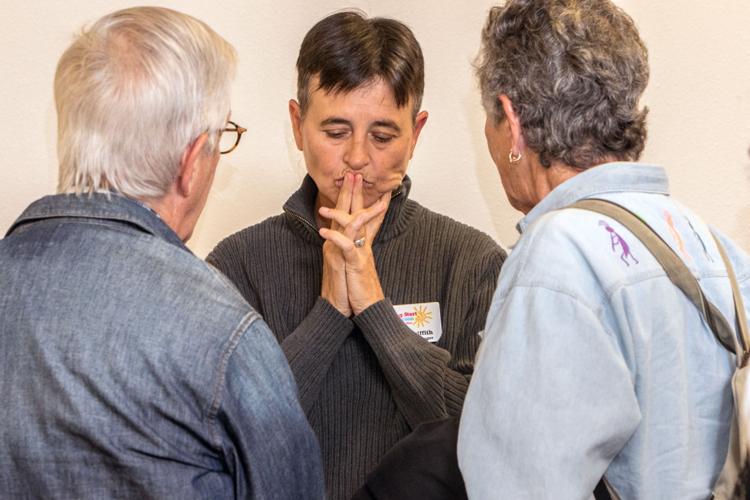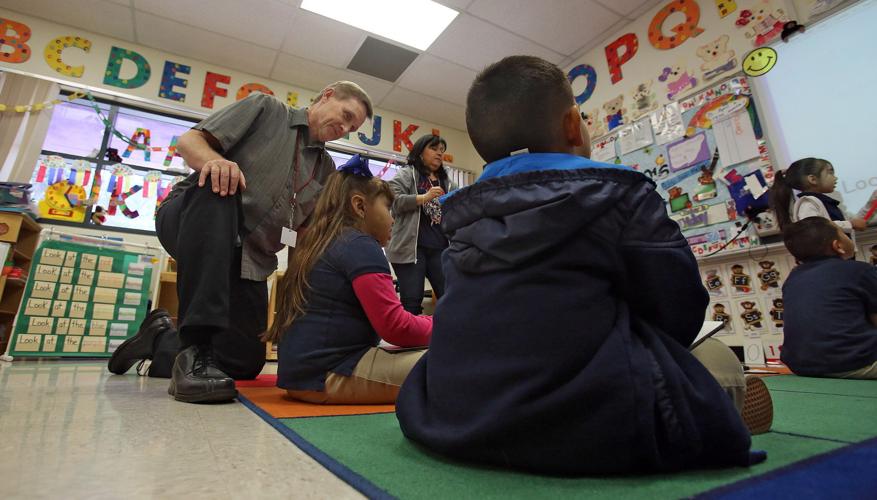The old adage that politics makes strange bedfellows was certainly true of the coalition opposing Tucson’s Proposition 204, which aimed to increase the city sales tax by a half-penny to pay for preschool vouchers.
The proposition, dubbed Strong Start Tucson, failed by a wide margin in Tuesday’s election, garnering just 34 percent of the vote after the vast majority of ballots were counted Tuesday night. There are still roughly 4,000 uncounted ballots that will not be calculated until at least Wednesday, but there are not enough ballots for the proposition to rebound.
The measure’s defeat was due in no small part to the vociferous campaign against the measure that united local Democrats, Republicans and groups like Americans for Prosperity — a right-wing political advocacy group funded by the Koch brothers.
Strong Start Tucson would have increased the city’s sales tax by a half-cent on the dollar, to 9.1 cents, generating an estimated $50 million per year to pay for preschool subsidies for low-income families.
The initiative was backed by a small cadre of early-childhood-education providers, and some state and federal Democratic politicians and family advocacy groups.
Supporters argued high-quality early-childhood education is the most strategic investment Tucson can make to help students succeed throughout life, and the initiative would support struggling low-income families.
But opponents, including many traditional allies of public education, successfully argued the measure lacked oversight and detail.
Many Democrats, including the Tucson mayor and four out of five city council members, opposed the measure for a variety of reasons — but Councilman Steve Kozachik said the Koch brothers had nothing to do with his opposition.
“I don’t care about the Koch brothers — I think for myself. I took a position on what was drafted. It was poorly constructed and had no specificity,” Kozachik said Tuesday night.
Kozachik zeroed in on the fact that the initiative has no sunset date, and the half-cent tax would live on in perpetuity unless citizens specifically vote to repeal it, saying the people didn’t want an initiative that garnered $50 million of public money per year with no sunset in sight.
Local business groups, including the Tucson Chamber of Commerce, also fought against the initiative, noting Tucson’s sales tax is already higher than most major cities.
The campaign heated up as the Arizona chapter of Americans for Prosperity, a “dark money” free market advocacy group backed by the Koch brothers, bought mailers urging voters to oppose the measure and sent volunteers knocking on doors around Tucson.
That drew sharp rebukes from the campaign and its supporters, who accused “out-of-state billionaires” of misleading and scaremongering the public.
Penelope Jacks, chair of the Strong Start Tucson campaign, said the opposition came from “the rich, the super-rich and the privileged.”
“I was disappointed with a number of the people in the community who purport to be education advocates and choose their bottom line rather than children,” Jacks said from the Strong Start Tucson campaign party Tuesday, where the mood was tired and people chatted over plates of tamales and chocolate chip cookies.
Eric Schindler, CEO of Child and Family Resources and a major financial supporter of the campaign, blamed the loss on the money put into the opposition campaign.
“There was a tremendous amount of Koch brothers money and efforts put into defeating this proposition,” he said.
The initiative garnered support from Democratic state and federal politicians, the Pima County School Superintendent’s Office and organizations like Mi Familia Vota, Casa De Los Niños and Child and Family Resources. Many of its financial backers stood to directly benefit from more public dollars flowing into the private preschool system.
According to campaign finance records, the Strong Start Tucson campaign raised more than $384,000, while the opposition committee raised more than $304,000.
That figure, however, doesn’t count the unknown amount spent against the initiative by Americans For Prosperity, which is not required to disclose its political spending on campaign finance reports.
The average high-quality preschool costs about $800 per month, which is out of reach for most Tucson families, supporters said.
The proposition aimed to create scholarships, on a sliding scale based on family income, that would help ensure that all Tucson children could have access to high-quality education. Currently, only one in five young children in Tucson attend a high-quality preschool.
But opponents argued it would set up an unfair system where children in Tucson could receive scholarships, while those outside the city limits, or even in the island of South Tucson, could not.
And opponents argued that up to two members of the seven-member commission will be early-childhood-education providers, which sets up a clear conflict of interest where people are voting on policies that will benefit their businesses.
But Kelly Griffith, campaign manager for Strong Start Tucson, said the campaign had a silver lining in that it started the conversation about high quality preschool — which will hopefully translate into future support for another proposal.
“I think one of the great things that this campaign did is that we took access to high quality preschool, which was not a conversation that people were having, and we elevated it to a whole new level,” she said.





